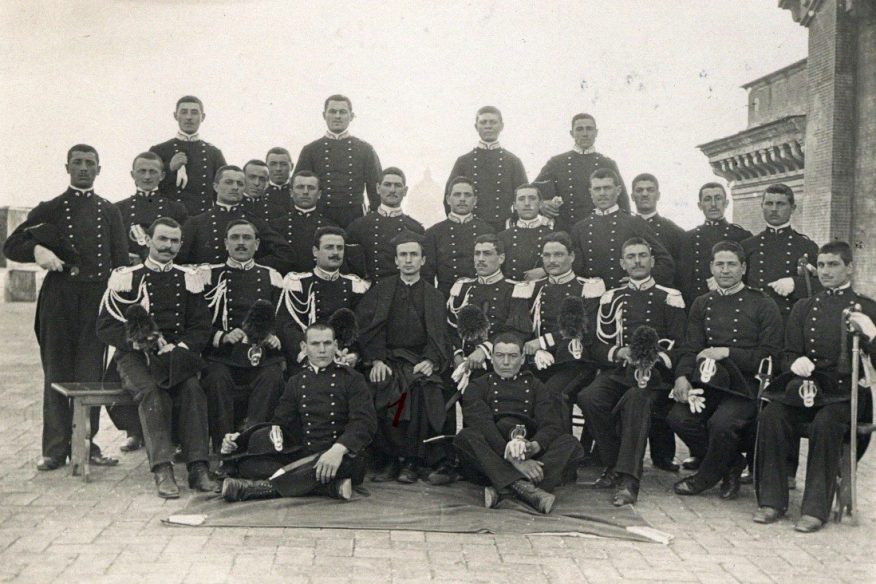Evening schools: call “Opera Massaruti”

Thousands of men throughout the 20th century were able to obtain a degree by attending an institution, the Opera Massaruti, founded by a Jesuit, Fr. Carlo Massaruti.
The education of adults is provided by the Italian State with specific courses at the Provincial Centres for Adult Education (CPIA), but throughout the 20th century there were numerous public schools that allowed working men and women to study in the evening hours.
The history of the Opera Massaruti
One of these was born within the Society of Jesus, thanks to the dedication of Fr Massaruti to whom we have already dedicated an article for the handkerchief donated by Pope Pius X.
Fr. Carlo at the beginning of the century, spiritually assisting especially the Carabinieri, had noticed that many knew only the first rudiments of schooling and had never had the opportunity to obtain a degree. In addition, the young men who worked in the barracks in the centre often came from afar and during their shifts had no points of reference: family, friends, acquaintances.
So the Jesuit opened the school inside the Collegio Pio Latino Americano: here the carabinieri attended lessons, mass but also had a recreation room at their disposal, the photographs show a pin pong table, books, board games.
Within a few decades, the premises became too small to accommodate the numerous students, 400 to 700 enrolled per year, so the Opera Massaruti was moved to Via Mancini, to a flat donated by a benefactor.
Soon the Carabinieri were joined by other military personnel: army soldiers (grenadiers, tank drivers), cuirassiers, financiers, members of the Navy and Air Force, prison guards, policemen, as well as firemen and agents of the Vatican Gendarmerie. Many of them had only an elementary school leaving certificate; having a higher qualification would have guaranteed advancement in rank, better pay and the possibility of a career. Adding up all the registrations taken from the preserved registers, so between 1954 and 2004, there are more than 16,200.

From military personnel to civilians, female students and professors
The numerous pupils who, over the decades, populated the school’s desks did not only belong to the armed forces, in fact, since the 1960s the school was also open to workers who wished to complete their studies, among them many blue collar workers.
Starting in the 1990s, the first female police officers also enrolled at Massaruti, followed by female civilian students, while teachers had already entered the school in the previous decade, especially in the following subjects: shorthand, English and French language, and computer science.
The school’s offerings were very wide-ranging: courses for a diploma in accountancy, surveyor; English and French language courses, shorthand courses and, in recent years, also computer science.
In addition to studying, there were recreational moments that united the students together with their families, educational outings to cultural sites or residences of the Society of Jesus such as Villa Mondragone, and dinners with the professors at Christmas. Numerous photographs are preserved of all these moments.
The archival holding
The holding of the Opera Massaruti, although severely deficient, is preserved in our historical archive. Although the papers cannot be consulted for research beyond 1958, it is possible to study the photographs, printed materials and documentation relating to the first five decades of the organisation’s life. Ulteriore materiale sull’operato della Massaruti è presente in the Holding of the Roman Province.
Consultation of the registers could give an account of the number of different members of the Arma enrolled in the school and the number of graduates year by year.
The school closed more than fifteen years ago, but part of its mission was inherited by Centro Astalli, which, among its many services, provides Italian courses for foreigners.
Maria Macchi











